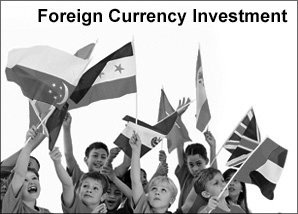Forex. A look at its benefits for travel & beyond.
Foreign exchange practically touches everyone’s financial and personal life.
For instance, if you have a child studying overseas, you will need foreign currency to pay for tuition. Planning for a holiday in London? Then you would probably be monitoring the Sterling pound. Sold an item through eBay to a US buyer? You may need to exchange the US dollars you were paid in to local currency. If you are investing some of your retirement investment portfolio in emerging markets such as India for global diversification, then you or your investment manager would need to buy Indian Rupee with local currency as well.
Currencies are issued by countries to facilitate the buying and selling of goods and services as well as financial transactions. International trading and investments usually require the use of foreign exchange, i.e. currencies issued by foreign countries.
In a nutshell, our lives may cross path with foreign currencies in one way or another.
Why transact in Foreign Currency?
Foreign exchange operates around the clock. Exchange rate fluctuations are also rapid and can be volatile at times. So how do people decide when to buy or sell foreign currency? There are usually three ways based on their motives for buying or selling foreign currency.
Motives for the buying and selling of foreign currency.
For transactions.
One of the prime reasons foreign currency exchanges hands is for transaction purposes. A person’s liquidity needs, i.e. conducting the foreign currency transaction to have the right currency for spending, may be placed ahead of other considerations, such as exchange rates.
Travellers who need cash for vacations or traders who need significant sums for imports are both examples. The transactions could be small, or small relative to the overall budget, so it is often not worth the time and effort to pick the right time to trade. However some people also fall into this category because they do not take a long term view to manage their foreign currency exposure.
For hedging purposes.
Another reason to buy foreign currency is for hedging purpose. This helps to manage the cost of future foreign currency expenses.
For example, you may be considering purchasing a property in Europe. You expect that it may be a few months before you locate the right property. You find the current exchange rate of 1 Euro to 4.2 MYR acceptable but are concerned that the Euro may appreciate in the coming months. Therefore you decided to buy the Euro at the current rate to prevent a potential loss if the Euro does appreciate, say, to 5 MYR.
This is a hedging transaction. By doing so, you give up the upside potential if the Euro depreciates in the next few months, say, to 3.8 MYR.
For potential profits
You may also trade currencies with the motive of making potential profits from currency movements.
For example, you buy Euro at 4.2 MYR with an intention to sell back to MYR if the Euro appreciates in the coming months. When it appreciates to, say, 4.8 MYR, you sell the Euro back to MYR to lock in a profit.
Foreign money, local tales
Whatever your reasons for using foreign currency, it has a role to play in your finances.
Take a look at how 3 different persons use foreign currency to their advantage, whether for liquidity purposes, savings or investments.
The transactor
Have forex, will travel
Paul is married and is father to 4 kids. Every year, the whole family will go to Australia, where his wife was originally born, for an extended holiday. Paul is busy enough with his job in the construction industry and has little time to pay attention to the FX market movement. He usually just converts his savings in MYR to AUD to cover his holiday expenses just before the holidays without worrying about the exchange rate.
Last year, his holiday coincided with a period that saw AUD on a 24 weeks high against MYR and Paul suddenly found his holiday become much more expensive than usual. Knowing that he needed to better manage his travel expenses in the future, Paul opened a bank account with HSBC Bank Australia Limited so that he can use the Global Transfer service to send money from his account in HSBC Bank Malaysia Berhad to HSBC Bank Australia Limited, whenever the rates are favourable. As a Premier customer the service is also free of charge.
The saver
Save smarter in foreign currency
Joanne, a mother, is planning to send her elder son to a boarding school in England in 2 years’ time. Unlike Paul, Joanne takes a forward looking approach to her personal finance and she has been setting aside a portion of monthly income to pay for the future tuition fee.
In a period of 6 months GBP/MYR has hovered at 4.9000 range and does not quite reach her target price of 4.8000. As her savings have been accumulating in MYR, in order not to leave it idle, she chooses to invest in Dual Currency Investments to enhance her yield.
Naturally, she chooses GBP as the linked currency and a strike rate as close to her target price of 4.8000 as possible. While GBP continues to stay at current level, she earns a healthy interest but if GBP depreciates, her funds will be converted to GBP. It is the best of both worlds for her.
The investor
Riding the currency movements
Thomas, 50 years old, runs a luxury imported food business and due to the nature of his business he is well attuned to FX market movements. Hence he invests a significant portion of his personal wealth in FX instruments. His investment strategy is to diversify his asset to low, medium and high risk products. For the core of his asset which will form his future retirement savings, he invests in Principal Guaranteed FX Structured Products. For example if he holds a positive view on AUD in the long term, he will purchase an AUD Digital Structured Investment which pays a 6% p.a.* coupon if AUD/USD appreciate to the target level at maturity a year later. Whereas if he believes CAD will move in tight range in the next 6 months, he will buy a Range Accrual Structured Investment which pays him high yield interest every day when USD/CAD is within the pre-defined range*.
Going foreign without leaving the country
Be it to transfer your MYR to your child studying overseas or to invest in foreign currencies, HSBC Bank Malaysia Berhad makes it possible and easy for you. Here are some of our products/services that help you manage foreign currencies and investments.
To facilitate your foreign currency transactions

Foreign Currency Savings Account
You can open an HSBC CombiNation Account (eligible for protection by
PIDM), a foreign currency denominated interest-bearing account (FCA)
which provides you with the opportunity to hold accounts in up to 12
foreign currencies. For added convenience, the FCA can be opened via
Personal Internet Banking (only available for existing HSBC Bank MYR
Demand Deposit1 Account Holders registered with Personal Internet
Banking)

Global View2 & Global Transfer
Link up your HSBC accounts globally and transfer funds between your accounts across the world in a secured and instant (literally in seconds) manner.
For hedging your future foreign currency expenses

FX Market Outlook
We provide daily FX market color and weekly FX commentary reports on our website.
For growing your wealth

Dual Currency Investment
Dual Currency Investment now available in gold currency pairings. HSBC offers the highest number of gold currency pairings3 in Malaysia with real-time pricing.

Structured Products
We provide wide range of FX & interest rate linked structured products that may enhance the yield of your portfolio or offer some protection against adverse FX rate movements.
For monitoring your FOREX holdings

Wealth dashboard
Manage your investment portfolio online at any time, giving you the
flexibility to monitor your wealth. Allows you to toggle between the base
currencies of your holdings and Malaysian Ringgit to check the foreign
exposures on your investment holdings.
Perhaps it is time to look beyond just exchanging MYR into foreign currency for your holiday trips and look at foreign exchange as potential investments. If you wish to know more about any of these foreign currency products, please contact your Relationship Manager.
Figuring Forex:
Will it go up or down?
For most investors looking to make a profit through currency movements, the big question is how do they reach a decision that a currency may potentially appreciate or depreciate? It is not an easy question to answer as the currency market is highly volatile. Among professional FX traders and analysts, they commonly use two popular types of analysis: fundamental analysis and technical analysis to help them evaluate currency movements.
Fundamental analysis refers to the type of analysis that is based on the belief that exchange rates are affected by economic fundamentals. Therefore, professional FX traders and analysts may analyse the factors that affect the macro-economy to understand past exchange rate movements and anticipate the future. These factors may include government fiscal policy, central bank monetary policy, government budget, trade balance, inflation, economic growth, and employment.
Technical analysis4 refers to the type of analysis based on the belief that price movements reflect all relevant information. This method relies on price history in order to predict the future. Analysts may use charts (technical indicators) to track and predict market movements by identifying “formations” or “trends”, i.e. historical patterns in bar charts and other more specialized ones. They may look out for patterns, whether the price is moving in a range and other clues to support their position.
For a daily update and technical analysis on leading currency performance, you may visit www.hsbc.com.my/FOREX.
Source:
1 “HSBC Bank MYR Demand Deposit Accounts are: Premier Account, Premier Junior Savings Account, Advance Account, Statement Savings Account, Passbook Savings, Basic Savings Account, Generic Current Account and Basic Current Account. 2 Global View is only applicable to certain transactions as the receipt of funds in your intended account of transfer is dependent on various factors including the type of currency, processing hours, weekends & public holidays in the sending and/or receiving country. HSBC shall not in any way be held liable for any delay or rejection of any application for transfer of funds. 3 Based on competitors analysis conducted by HSBC Bank Malaysia Berhad as of 6 June 2013. 4 Forex Trading, About.com, “Introduction to Forex Technical Analysis”, undated.
October 2013
Applicable to Dual Currency Investment & Structured Investment:
THIS IS NOT PRINCIPAL, PROTECTED INVESTMENT, AND DEPENDING ON THE PERFORMANCE OF THE UNDERLYING, INVESTORS MAY AT MATURITY RECIEVE AN AMOUNT LESS THAN THE PRINCIPAL AMOUNT INVESTED.
WARNING:
The returns on your structured product investment will be affected by the performance of the underlying asset/reference, and the recovery of your principal investment may be jeopardised if you make an early redemption. THIS STRUCTURED INVESTMENT IS NOT PROTECTED BY PERBADANAN INSURANS DEPOSIT MALAYSIA.


 LIKE THIS ARTICLE?
LIKE THIS ARTICLE?





















